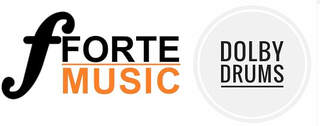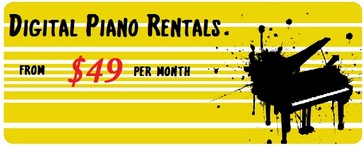|
We are often asked, "How do we get our kids to practice their instruments more often?" Here are some suggestions to help increase their interest and keep them motivated:
1. Take your kids to concerts and performances We believe that the more you expose your kids to live music, and the more they get a chance to listen to good performers, the more they become interested and motivated to practice. 2. Have them listen to music listening to music helps your child gain a much better ear for music, and they become more responsive to sounds. Active listening also helps them with intonation if they play a stringed instrument. 3. Subscribe to music related magazines Reading and staying up to date on events in the music world will deepen their interest and commitment to their instrument. Sometimes a small investment like this will pay off long term. 4. Get to know your child's teacher We believe that the parent-teacher relationship is extremely important in understanding the progress of your child's musical education. Remember that it is going to be a team effort, and since they likely only meet the teacher once per week, it is important that they practice what they've learned the rest of the days 5. Enroll them in recitals. Enrolling your child in recitals gives them something to work toward, and keeps them motivated to practice since they will be performing in front of an audience. Please feel free to contact us if you have questions about this or other topics
9 Comments
How do you stay motivated playing the piano and break through some plateaus? We will share some standard and some less common ways to get some extra mileage out of your practices.
1. Push harder on the keys Somehow when you push harder when learning something new, you are making a deeper imprint in your mind and finger memory when you do this. When you strike the keys with more confidence and authority, it stays with you when you play these passages in the future. 2. Repeat, repeat, repeat When you find yourself playing a difficult passage, break it into smaller phrases, and play them over and over again in a short period of time. It can be mind numbing, but your fingers have memory, and they will thank you for this later 3. Use your iphone or kitchen timer This especially comes in handy when you have a child who keeps asking, "am I done yet?" Doing this gives a definite start and finish time for practice and creates good habits. 4. Say the notes as you play them This is a best practice for beginners who are learning to read music. The reinforcement will make learning to read music happen faster. You can also sing the notes as some of our senior students like to do. 5. Switch to different tones or to a digital piano Sometimes it is nice to step away from the acoustic piano and play on a digital piano if you have one. You can gain some new energy by doing this. You can get more mileage by practicing the same scales, songs and finger exercises on all of the different tones of the digital piano. This can easily buy you an extra 10-20 minutes of practice. 6. Reward yourself This final strategy goes a long way in making strong connections with what you are playing. Simply keep your favorite beverage (non-alcoholic, of course) with you while you are learning something new. As you accomplish something challenging, take a small sip. Wait to take another when you make an improvement or manage a difficult passage or chord. There is something hard wired in our brains that responds to this type of reward system as simple as it may seem. Notice the way you feel as you take a sip and reflect on your accomplishment. We hope this helps you make some extra leaps or break through some plateaus that you may experience when practicing the piano. Feel free to contact us with questions about Piano Lessons in Gaithersburg, MD or Digital Piano Rentals Often times people will take music lessons or take their kids to a music instructor without putting much thought into how well that teacher appeals to the student's strengths. Most teachers only teach one way and do not adapt well to students who may have different learning styles. If this is the case, you really have only two options, other than muddling along with an inadequate teacher: Help your instructor understand what works for you, or find another instructor.
The best teachers will teach you how to teach yourself. Some examples of a teacher that you may want to avoid would be one who is inflexible, who insists the you play songs you don't like, or is impatient with your mistakes or bad habits. A good teacher is positive, flexible, and willing to seek out pieces that suit the students technique and taste. Also, the ability to communicate and relate to the student is paramount to quality skill development. If you feel that you are not making progress, or you feel that you are less interested in the lessons than you expected to be, it may be the teacher, and not you. In a down economy, you may be looking for ways to shave costs, especially large ticket purchases like a piano or digital piano. Renting a piano or digital piano can be a good idea in some cases, while it is a much better plan to purchase in others. We will take a look at some circumstances for both.
Renting makes the most sense if you have a child who you are not sure how interested that they will be in playing the piano after six months of lessons. If they stay interested, then it is clearly a better move to purchase at that point. We usually recommend going with a good upright or baby grand if your child shows sustained interest. Many people do not know that they can rent a digital piano, but this is a very good option for college students, people who are in the country temporarily, or those who are hesitant to make a large scale purchase until they know they won't be moving for a while. Renting also buys you time to make an informed purchase while your child's skills continue to bloom. We recommend Yamaha, Kawai, or Samick as a good brand to take you or your child to the next level. Keywords Piano Rental, Digital Piano Rental, Keyboard Rental |
About UsSinging Strings Music Center is located in Archives
January 2013
Categories
All
|


 RSS Feed
RSS Feed